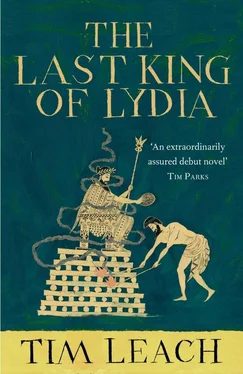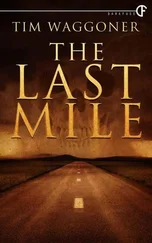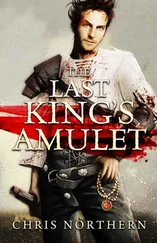Tim Leach - The Last King of Lydia
Здесь есть возможность читать онлайн «Tim Leach - The Last King of Lydia» весь текст электронной книги совершенно бесплатно (целиком полную версию без сокращений). В некоторых случаях можно слушать аудио, скачать через торрент в формате fb2 и присутствует краткое содержание. Год выпуска: 2013, ISBN: 2013, Издательство: Atlantic Books Ltd, Жанр: Исторические приключения, на английском языке. Описание произведения, (предисловие) а так же отзывы посетителей доступны на портале библиотеки ЛибКат.
- Название:The Last King of Lydia
- Автор:
- Издательство:Atlantic Books Ltd
- Жанр:
- Год:2013
- ISBN:9780857899200
- Рейтинг книги:5 / 5. Голосов: 1
-
Избранное:Добавить в избранное
- Отзывы:
-
Ваша оценка:
- 100
- 1
- 2
- 3
- 4
- 5
The Last King of Lydia: краткое содержание, описание и аннотация
Предлагаем к чтению аннотацию, описание, краткое содержание или предисловие (зависит от того, что написал сам автор книги «The Last King of Lydia»). Если вы не нашли необходимую информацию о книге — напишите в комментариях, мы постараемся отыскать её.
The Last King of Lydia — читать онлайн бесплатно полную книгу (весь текст) целиком
Ниже представлен текст книги, разбитый по страницам. Система сохранения места последней прочитанной страницы, позволяет с удобством читать онлайн бесплатно книгу «The Last King of Lydia», без необходимости каждый раз заново искать на чём Вы остановились. Поставьте закладку, и сможете в любой момент перейти на страницу, на которой закончили чтение.
Интервал:
Закладка:
Croesus signalled, and the soldier beside him blew a single, long note from the bullhorn that was slung round his neck. The chattering roar of the people ceased. Each of the twelve thousand men gripped the hair of the animal at his side and looked up to the king. They did not wait for him to speak, for he was too distant for them to hear him. They awaited a sign.
Croesus glanced over to the other side of the balcony. The goat, its coat pure white, ruminated calmly next to him. Sensing the king’s gaze, it inclined its head to face him. Its black rectangular pupils passed over Croesus with little interest, until it caught sight of a roll of parchment thrust into his belt. It lunged forward, its lips parted and snuffling for the paper, but Croesus pushed its questing nose away, letting his fingers trail down through its coarse wisp of beard. He took a silver cup of water from the edge of the balcony and raised it high in the air as a signal to those who waited below.
In the square and the streets beneath the citadel, each man took a cup of water, lifted it high, and poured it over the head of the beast in front of him. Each animal, feeling the water running over its head, instinctively nodded as if in unwitting agreement, giving its consent for the sacrifice. Croesus lifted his curved knife. Twelve thousand blades shone an answer back to him.
Then the knives fell, digging and cutting and sawing, and waves of blood poured out like an onrushing tide. The air was filled with the screams of the dying animals as they slumped to their knees and the blood boiled up through their mouths. A moment later the sound was drowned out as the people of Sardis roared in celebration.
The king’s hands trembled, and a priest stood nearby to second his attempt if he faltered. But he had been well instructed and made no mistake. He reached forward and opened the animal’s throat with a single cut.
The goat gave a single barked bleat, of confusion more than pain. It dropped its head and choked, then fell to its knees. It moaned mournfully, shivered and rested its head on its forelegs. It watched its own hot blood spread out around it like a crimson blanket. Its eyes grew dim, and then half closed, a tiny glint of gold visible through the thin slit of the eyelids. It lay still, and waited to die.
Croesus blinked back sudden tears. He put his hands into a basin of water, watched the tendrils of blood eddying into the water like smoke through the air. He shook his head, and smiled uncertainly at his wife. ‘Well, it is finished.’ She said nothing in response, and Croesus turned to his slaves. ‘Prepare this’ — he gestured at the carcass — ‘for my evening meal. Minus the Gods’ share, of course.’
He watched them take the beast away, and felt a kind of weary relief. This sacrifice committed him. The moment for doubt, the moment when he could have changed his mind, was past. The pressure of choice had lifted, and now he had only to follow the course through to the end. He turned to share the thought with his wife. But when he looked back, Danae was gone.
For a single, irrational moment he thought she must have thrown herself from the balcony down into the square below, passing from the world with a single sudden step. Then he saw a long piece of fabric fall back into place over one of the entrances to the balcony, disturbed by her passage. He hurried inside to follow her.
Far below the balcony, the streets of Sardis were wet with blood. The stones of the square were thick with the holy gore, which mixed with the earth and dried in blackish whorls. The priests walked calmly through the crowd, finishing off wounded animals where an inexperienced hand had botched the job.
The rooftop onlookers came forward, daubing their foreheads with the blood that ran on the ground in shallow streams. A swarm of prostitutes who had waited at one side of the square as the sacrifice was prepared now advanced in a surge of incense and clinking jewellery, trying to entice the men to honour the Gods in another way. Children dipped their hands deep in the blood and tore off through the streets, chasing each other and tagging every wall and doorway with tiny bloody hand prints, spreading the mark of the Gods to every corner of the city.
Inside the palace, Croesus pursued his wife.
Like a figure in a dream, her pace seemed to slow and hasten along with his. At any moment that he seemed on the verge of reaching her, she somehow drew further away from him. He almost called out to her, but realized that he had no confidence that she would respond to command.
Finally, after following her through the rooms and corridors of the palace, he found her waiting for him at the entrance to the women’s quarters.
‘Well?’ he said. ‘What is it?’
She looked at him, her eyes disbelieving, and under her gaze, he felt a sudden shame. ‘I am sorry,’ he said. ‘I have not been kind to you.’
‘You haven’t been anything to me,’ she said. ‘A husband, or a king. Ever since-’
Croesus bowed his head and raised a hand, palm forward. He gestured to a cushioned couch in the corner of the room. ‘Sit with me. Please,’ he said.
They sat together in silence, and as they did, Croesus tried to remember how to speak to his wife. Once he could have said anything to her. He thought back, tried to think of the last time they had spoken that had not been at some official function, a private conversation that had not been merely an empty exchange of pleasantries. He could not. He had let her become a stranger to him.
She broke the silence. ‘Why are you doing this?’ she said.
‘Doing what?’
‘Fighting this war. And don’t speak as you do to the others. Of glory or honour or necessity. They may believe it, but I don’t. It’s about you. It’s always been about you.’
‘I considered peace,’ he said. ‘I knew it is what you would wish for. But I realized that it might never come again. That I might pass my whole life without another chance.’
She shook her head. ‘For what?’
‘What is more real than this? What matters more than a war?’ He paused. ‘I wish there could be something else. But there is not.’
‘My father once told me that only a fool chooses war,’ she said. ‘He said that in peace, sons bury fathers, but in war, fathers bury sons.’
‘We buried our son in peacetime.’
‘And now you ask others to bury theirs.’
‘Perhaps you are right,’ he said quietly. Then: ‘I wish I still had a son.’
‘You have a son.’
‘But not an heir. I want to make a mark on this world, before I leave it.’ She opened her mouth to speak, but he continued: ‘Lesser men can be content with. . I don’t know. . I honestly don’t know how a slave or a common man can look back on his life and feel it worth anything. Fifty years of scratching at a field, haggling in the market. But I can do something remarkable.’
‘We could be happy,’ she said. ‘Did you think of that? We have all the wealth of the world. You could spend it on anything you like. Why spend it on a war?’
‘What could we buy that we do not have already? Spend it on the people? The greatest festivals are soon forgotten, and even if I were to make the streets of Sardis run with gold, what difference would it make? There’s no glory in throwing money to the poor.’
‘And there is in this?’
‘People remember wars, don’t they?’
‘A name on a map, Croesus. That’s all you’re fighting for.’
No,’ he said. ‘It is a signature written on history. It lasts for ever. Atys should have been my legacy. I shall leave an empire behind instead.’
She sat in silence. At last, very quietly, she said, ‘Do as you please. When this war is over, if you are still unhappy, come to me again. Perhaps then you will see how wrong you are. Perhaps it is only then that you will try and find a way to be happy with me. And your son.’
Читать дальшеИнтервал:
Закладка:
Похожие книги на «The Last King of Lydia»
Представляем Вашему вниманию похожие книги на «The Last King of Lydia» списком для выбора. Мы отобрали схожую по названию и смыслу литературу в надежде предоставить читателям больше вариантов отыскать новые, интересные, ещё непрочитанные произведения.
Обсуждение, отзывы о книге «The Last King of Lydia» и просто собственные мнения читателей. Оставьте ваши комментарии, напишите, что Вы думаете о произведении, его смысле или главных героях. Укажите что конкретно понравилось, а что нет, и почему Вы так считаете.












